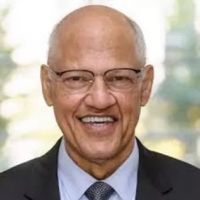CORE COUNTRY TEAMS
Affiliate country teams
Affiliate Team Leaders
Africa group

Wilmot James
Wilmot James is a Senior Research Scholar at the Institute for Social and Economic Research and Policy (ISERP) in the Faculty of Social Sciences at Columbia University in New York City. An academic by background with a Ph.D. from the University of Wisconsin at Madison, Wilmot was previously a Member of Parliament (South Africa) and Shadow Minister of Health. He served as the Chairman of the Democratic Alliance (DA), the official opposition, between 2010 and 2016. Wilmot is the author and/or editor of seventeen books that include the policy-oriented Vital Signs: Health Security in South Africa (Johannesburg, 2020), essays on the public understanding of science titled Nature’s Gifts: Why we are the way we are (Johannesburg, 2010) and an edited collection of Nelson Mandela’s presidential speeches Nelson Mandela in his Own Words (London, 2003) with forewards by Kofi Annan and Bill Clinton, which was presented to the late Mandela on his 85th birthday in July 2003. Dr. James served on the Board of Trustees of the Ford Foundation between 1996-2008. He has teaching experience from the University of the Western Cape and University of Cape Town and post-doctoral and visiting professorial experience from Yale University, Indiana University, Edinburgh University, the Open University and California Institute of Technology. At Columbia University, he teaches a course on catastrophic risks and conducts research in the areas of biosecurity, catastrophes and vulnerable populations, particularly children, with a focus on Africa.
Lyal White
Before establishing Contextual Intelligence, Prof. LYAL WHITE was the Founding Director of the Johannesburg Business School (JBS) at the University of Johannesburg in South Africa. In this role he established a world class business school with a focus on growing and scaling new business in Africa, for a lasting impact on society. With a renewed emphasis on Contextual Intelligence, Prof. White writes and advises on strategic thinking, execution and political economy in Africa, Asia and Latin America relevant to the purpose of business, impact and decision making.
Indonesia
Sidrotun Naim
During the course of the current pandemic of COVID-19, Sidrotun Naim has contributed in providing policy recommendation to the Office of the President of Indonesia, the Vice Minister of State-Owned Enterprise, the Governor of West Java, and the Mayor of Surabaya. She has appeared on various national media, sharing to the public about issues around COVID-19. An active member of KawalCovid19, crowdsourced database and information with high accuracy, from the public and for the public, Naim is also a volunteer for the Phase-3 Clinical Trial for CovaVac in Bandung, West Java. A microbiologist (aquaculture and medical) trained at the University of Arizona and Harvard Medical School, Naim has secondary interests in science policy, also leadership and decision sciences after her study at Harvard Kennedy School.
Febby Widjayanto
Febby Widjayanto developed an interest in the field of Science, Technology and Society (STS) since she was formally trained in the discipline of politics and development studies at Global Development Institute, University of Manchester. She has got herself conversant with the discourse around the making of science, democracy and public policy that shape her perspective in understanding COVID-19 pandemics as an issue with complex multidimensionality. Her grasp in such areas of study has helped articulate her opinion published on International Policy Digest, to give the wider audience outside Indonesia a sense about how the country managed the COVID-19 crisis. She is also a contributing writer in a book titled Humanity at the Time of Corona Outbreak published by Indonesia’s major publishing company, Balai Pustaka.
Peru
Melina Galdos Frisancho
Melina Galdos’ research focuses on understanding how the different actors in an innovation system perceive and act on innovation by examining the case of inclusive innovations in Peru. Her research interests revolve around the role of universities, organisations’ normative expectations, and researchers’ values and beliefs around the potential of innovation to overcome global challenges of poverty and social exclusion. In 2016, Melina was awarded a ‘Jóvenes Líderes Iberoamericanos’ (Young Ibero-American Leaders) Scholarship to represent Peru in a leadership programme organised by the Fundación Carolina and Fundación Rafael del Pino. This experience prompted an interest in researching development in Latin America from an innovation perspective. After a year at the University of Glasgow, from where she obtained an MRes in Public Policy Research, Melina was awarded a full scholarship from the Science Policy Research Unit and the University of Sussex Business School to undertake a PhD in Science and Technology Policy Studies.
Rogelio Scott Insúa
Rogelio is a second year PhD student in the Anthropology Department at Cornell University. Alongside his collaboration with the CompCoRe case study of COVID-19 in Peru, he is also working on an adjacent research project that aims to trace the evolution of the Peruvian population’s explanatory models about COVID-19. His doctoral dissertation focuses on the cultural intersections between genomic medicine, the psy-sciences and disability in Latin America.
Sebastián Zarate Vásquez
Sebastian is a PhD student at NC State’s Forestry and Environmental Resources Department. Sebastian comes from Peru with a background in social sciences. He graduated from Pontificia Universidad Catolica del Peru with a B.A in Sociology and has a master’s in Science and Technology Policy from Arizona State University. He has worked in GRADE (Grupo de Analisis para el Desarrollo) a Peruvian Think Tank that focuses on public policy and co-founded Sidereus Nuncius, a nonprofit that is involved in the governance of science and technology in Peru. He is part of the AgBioFEWS Fellowship at NC State. He is interested in science and technology policy in Latin America, sustainability, emerging technologies, natural resources, and the environment.
